In Pakistan, Pandemic Derails Water, Sanitation, and Hygiene Work
Government focus on Covid comes at the expense of other public health projects.
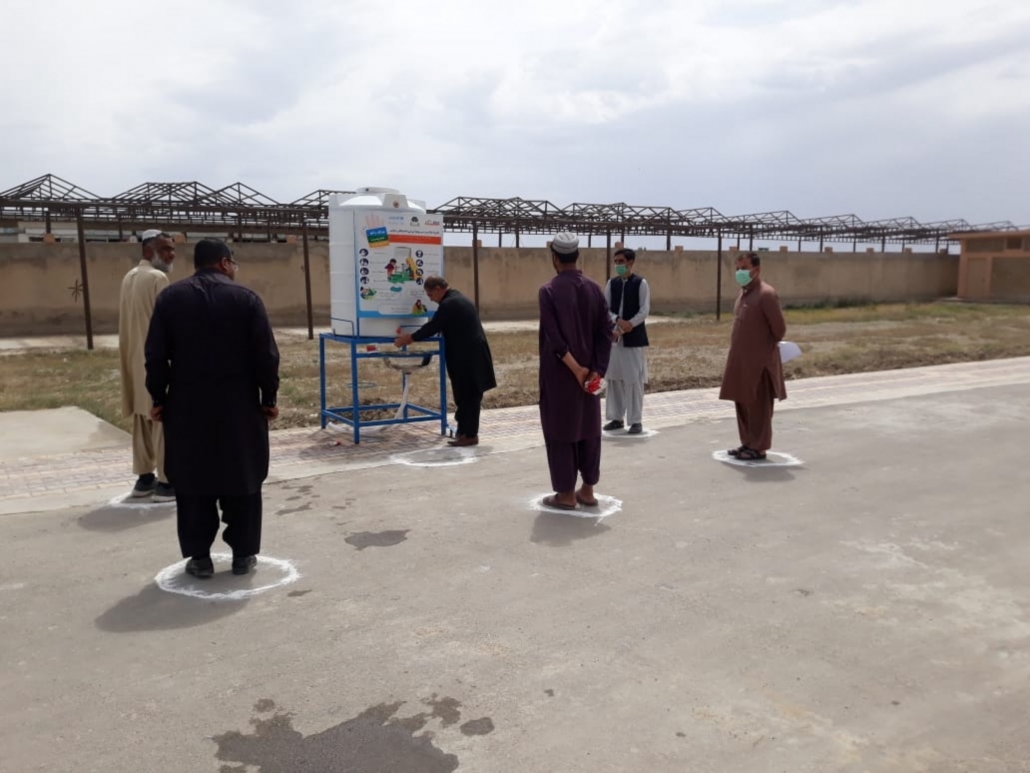
Since March, UNICEF and its partners have provided mobile handwashing stations and water tanks to markets and meeting places. Photo provided by Thewodros Mulugeta at UNICEF Pakistan.
By Hannah Ni’Shuilleabhain, Circle of Blue
More than seven months into the pandemic, Tewodros Mulugeta senses the public’s frustration with restrictions designed to keep the virus in check.
Mulugeta describes the current focus on the virus as “a fire-fighting engagement” — in other words, rather than focusing on chronic public health problems like clean water and a lack of toilets, officials are occupied with an emergency response to extinguish the pandemic.
“People would like to go back to having the same sort of social interaction: seeing their friends, getting water from a communal source, going to prayers as they used to do, gather in big crowds,” said Mulugeta, chief of water, sanitation, and hygiene at UNICEF Pakistan. “That’s one thing which is keeping everyone worried: that those old ways will not really come back.”
Those old ways seem far removed from today’s Pakistan. Through the second week of October, the government had confirmed more than 320,000 cases of Covid-19, and 6,600 deaths. Although the number of cases dropped from its June peak, hundreds of new infections are recorded each day. The government and humanitarian agencies continue to encourage physical distancing and wearing a face mask. For water, sanitation and hygiene (WASH) officials, combatting Covid-19 means telling people to wash hands and safely dispose of waste.
Since March, UNICEF and its partners have provided mobile handwashing stations and water tanks to markets and meeting places. These services continue to be on the move in response to lockdowns, distancing rules, and shifting areas of need. “Now we’re relocating those to schools because schools are becoming more open,” Mulugeta said.
The pandemic has also brought about a more fundamental shift in the country, one with potentially long-lasting consequences for public health. Responding to the immediate needs of the health crisis has been necessary, Mulugeta said. But he claims that attention to the virus has diverted resources from water, sanitation, and hygiene projects in communities with the least access to those services.
Mulugeta describes the current focus on the virus as “a fire-fighting engagement” — in other words, rather than focusing on chronic public health problems like clean water and a lack of toilets, officials are occupied with an emergency response to extinguish the pandemic.
Rural communities and people in informal settlements in urban areas are most in need of water, sanitation, and hygiene services. But those are not the places where Mulugeta has been working recently.
“Normally [we] would have picked districts where there is no drinking water source or where communities are practicing open defecation,” he said. “The fact that Covid was heavily affecting the urban cities, there was a mismatch where we had been responding to Covid vis-a-vis the underlying WASH gaps in rural settings.”
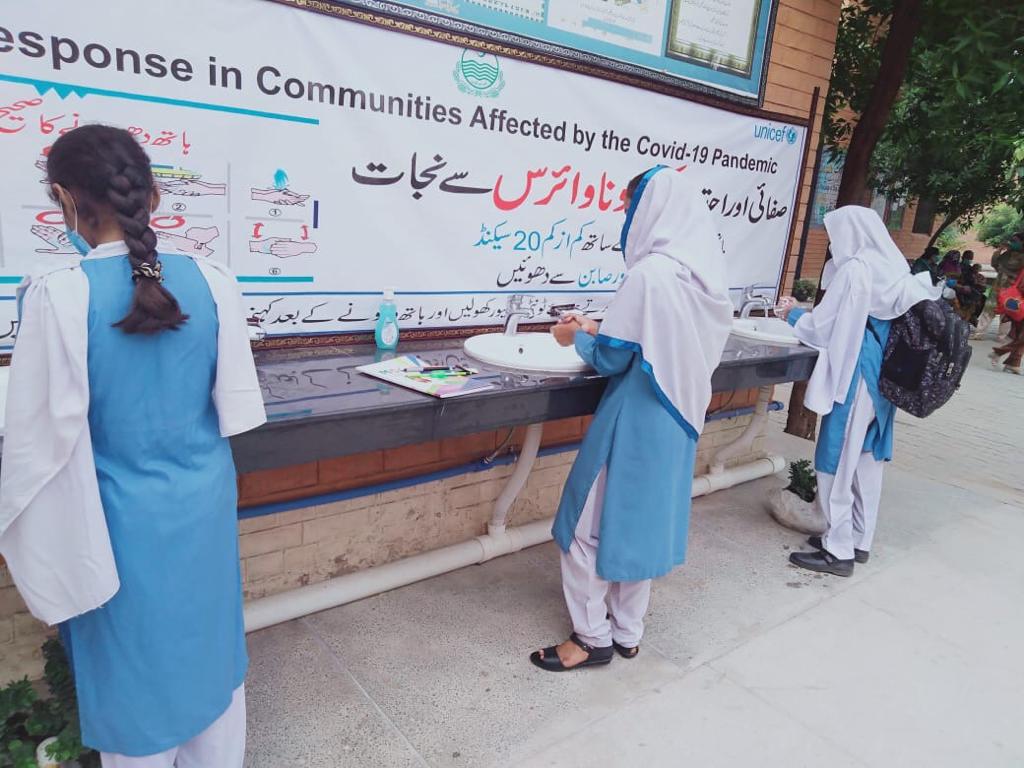
Wider acceptance of hygienic practices like handwashing would be a positive outcome. Photo provided by Thewodros Mulugeta at UNICEF Pakistan.
Distance Learning
Not only have pandemic restrictions changed where Mulugeta and his colleagues do their work. They have also changed how they work.
In-person demonstrations of proper hygiene behavior are out, replaced with online lessons through WhatsApp and other social media platforms. This alternative is not as effective as meeting face-to-face with vulnerable groups, since only an estimated one-third of the population has an internet connection at home. What’s more, the practices they are trying to encourage can feel incompatible with social structures common in Pakistan.
“The old water lines are made to provide water, not the supply of safe water,” said Hifza Rasheed, director of water quality at the Pakistan Council of Research in Water Resources (PCRWR).
“In a society like Pakistan where extended families are living together it’s not always easy,” said Mulugeta. “In Pakistan, three generations of families will stay in a multi-story building, in the same premises, and maybe a couple of those family members supposed to go out, work and bring some sort of the income back, so if one gets infected the whole family is at risk. That’s a new kind of challenge Covid has brought to this kind of society.”
WASH gaps run deep in Pakistan. The main source of water for the country–groundwater recharged from the Indus basin–suffers from increasing pollution, open defecation, and growing saltwater intrusion. The country is already one of the most water-stressed on the planet and groundwater is being dangerously depleted. Added to those stresses are trend lines that are running in the wrong direction: temperature increases as a result of carbon pollution and projections of an additional 100 million people by 2050.
There are also fundamental deficiencies in the water treatment and distribution systems. “The old water lines are made to provide water, not the supply of safe water,” said Hifza Rasheed, director of water quality at the Pakistan Council of Research in Water Resources (PCRWR).
A majority of the population depends on a basic water source, meaning water is not available at home and has to be collected from a tap or well. National water testing in major cities by PCRWR in 2017 deemed 69 percent of samples unfit for drinking water, with some locations having almost all sources deemed unsafe. The culprits are consistent: bacteria and coliform from surface runoff and sewage disposal. Groundwater is contaminated by the open surface flow of untreated sewage, rural wells don’t have source protection, and waste from septic tanks seeps into underground water tanks.
A third of water schemes introduced by the Public Health Engineering Department in the rural and remote urban areas of Punjab are not functioning, according to the Punjab Urban Resource Center. Where there are local water facilities, proper disinfection and technician training are lacking.
These obstacles are heightened in the current moment. The WASH resource gap means unmet needs in schools and healthcare facilities, leaving millions vulnerable in the event of a resurgence of Covid cases. How the WASH sector can close that gap depends not only on low caseloads, but also the secondary effects like high unemployment. The International Monetary Fund predicts an increase of unemployment from 4.5 percent before the pandemic to 5.1 percent by the end of this fiscal year. A more stable economy, Mulugeta said, would mean more financial resources available to water and sanitation.
“If Pakistan gets back to political stability, that would hugely affect the sector,” said Mulugeta.
Given the massive economic and social disruption caused by the virus, stability might take a while. Wider acceptance of hygienic practices like handwashing would at least be a positive outcome. But Mulugeta still worries that the laser focus on Covid will come at the expense of the WASH sector.
“It requires a huge capital investment in uplifting the WASH requirements in informal settlements,” he said. “And in a second wave, those areas would be hard hit. UNICEF and other sector partners would not be able to keep up with the demand.”
Hannah Ni’Shuilleabhain is a student at Northwestern University’s Medill School of Journalism and completing her Journalism Residency at Circle of Blue. She has reported for her college radio WNUR and online magazine NorthByNorthwestern on campus events, Evanston-Chicago news and scientific research. Based in her hometown Plano, Texas, her interests include rowing and learning Turkish.

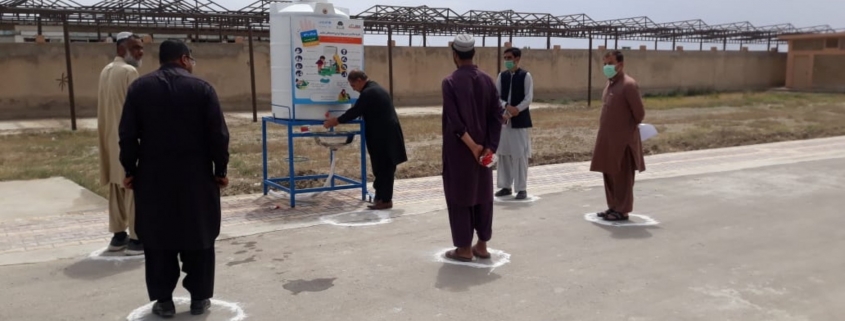


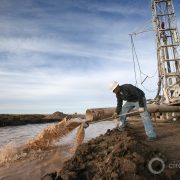
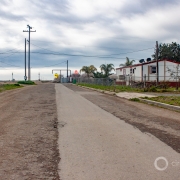
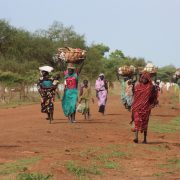
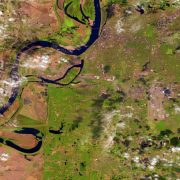



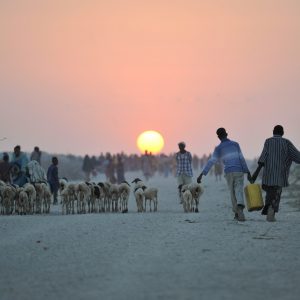

Leave a Reply
Want to join the discussion?Feel free to contribute!